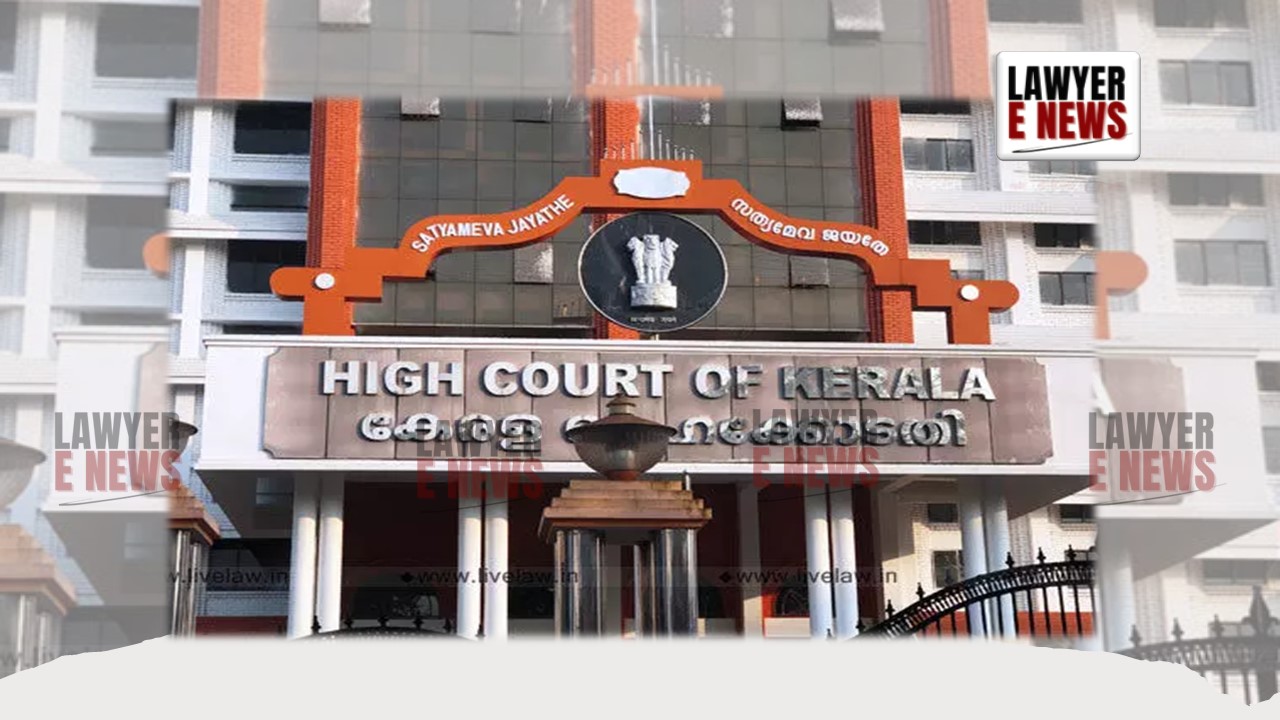-
by sayum
14 February 2026 2:22 PM



High Court affirms Sessions Court’s directive to provide alternative accommodation while ensuring financial provisions for the petitioner.
The High Court of Kerala has upheld the Sessions Court’s decision vacating a residence order granted under the Protection of Women from Domestic Violence Act (PWDV Act) and directing the respondents to provide alternative accommodation for the petitioner, Omana Somanadhan. The judgment, delivered by Justice P.G. Ajithkumar, emphasized the necessity of harmonizing the provisions of the PWDV Act with the Maintenance and Welfare of Parents and Senior Citizens Act, 2007.
The petitioner, Omana Somanadhan, an elderly woman, had been residing in a shared household along with her son, Deepu Soman, and daughter-in-law, Ashmitha M.T. Following the death of her husband, Omana sought protection under the PWDV Act to continue residing in the shared household. The Judicial Magistrate of First Class, Koothuparamba, initially granted the residence order. However, the respondents contested this order citing significant financial liabilities and a previous tribunal order that provided for alternative accommodation. The Sessions Court, Thalassery, vacated the residence order and directed that alternative accommodation be arranged for the petitioner.
Harmonious Interpretation of PWDV Act and Senior Citizens Act:
The High Court emphasized the importance of interpreting the PWDV Act in harmony with the Maintenance and Welfare of Parents and Senior Citizens Act. Justice P.G. Ajithkumar remarked, “The PWDV Act, being benevolent, aims to protect the interests of aggrieved persons. However, this does not negate the necessity of considering the rights and interests of respondents.”
Balancing Rights and Financial Realities:
The Court observed that while the PWDV Act grants significant rights to aggrieved persons, the financial realities and obligations of the respondents cannot be ignored. The respondents highlighted that Deepu Soman was facing severe financial distress, including a travel ban from the Supreme Judicial Council of Qatar due to outstanding debts, necessitating the sale of the shared household property.
The High Court extensively discussed the principles underlying the provision of alternative accommodation under the PWDV Act. It referenced the Supreme Court’s ruling in Prabha Tyagi v. Kamlesh Devi which elucidates the right of an aggrieved person to reside in a shared household but also allows for alternative accommodation in appropriate circumstances. Justice Ajithkumar noted, “Depending upon the facts and circumstances, the Court can decide whether protecting the right of the aggrieved person to reside in the shared household or providing her an alternative accommodation will meet the ends of justice.”
Justice P.G. Ajithkumar remarked, “An alternative accommodation can be ordered if it reasonably protects the right of residence and interest of both parties, especially when continuing in the shared household becomes impractical due to financial constraints.”
The High Court’s affirmation of the Sessions Court’s judgment underscores the judiciary’s effort to balance the rights of aggrieved individuals with the financial realities faced by respondents. By directing the respondents to deposit Rs. 3 lakhs for the petitioner’s rent and maintenance, the Court ensures that the petitioner’s needs are met without unduly burdening the respondents. This judgment is expected to influence future cases, reinforcing the importance of a balanced approach in domestic violence cases involving elderly individuals.
Date of Decision: July 4, 2024
